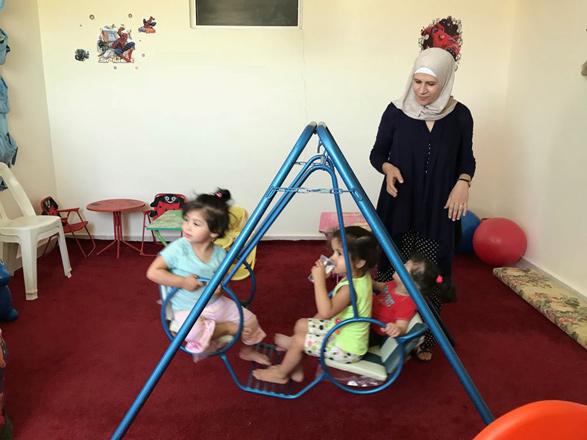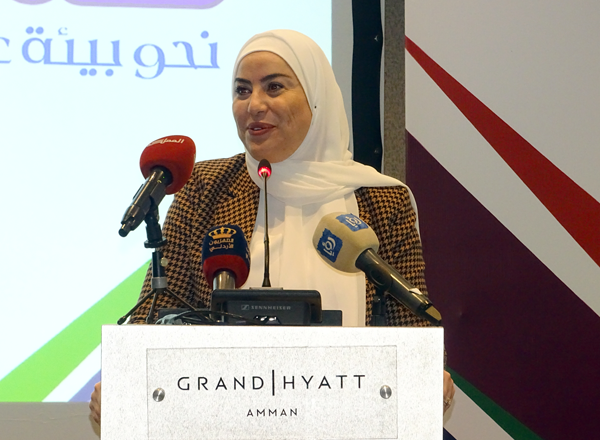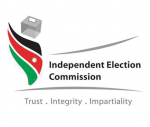You are here
Daycare training boosts women employment
By Hannah Myrick - Aug 20,2018 - Last updated at Aug 20,2018

Israj Halalmeh is seen in the home daycare she established with her sister in Karak (Photo by Hannah Myrick)
AMMAN — Seven months ago, two sisters took a leap of faith, taking a loan of JD1,600 in the hopes of starting their own in-home daycare for children.
Sisters Etimad Halalmeh Jawazneh, 32, and Israj Halalmeh, 38, have since created a successful play and learning space for seven children in Karak, while participating in a training programme aiming to increase female employment around the Kingdom.
The home-based daycare training (HBDC) was one of the measures implemented by the German Development Agency (GIZ) to enhance employment opportunities for Jordanian women from the Employment Promotion Program (EPP).
Funded by the German government, the HBDC training assists women aged between 18 and 55 years old, most of them running their own home daycare businesses, while others plan to open one in their local area.
Etimad and Israj completed the HBDC training in Karak last June, using their respective educations in childcare and childcare for special needs children to enhance their skills.
For Nahida Elsaies, the gender adviser for the enhancing employment opportunities for women project within EPP, "this [daycare] job offered a solution to the many obstacles which hinder women’s employment, such as unacceptable pay, lack of child care and insufficient public transportation".
The home-based care environment also offers working mothers who bring their children in a chance for a more flexible working schedule, smaller costs and a familiar family environment for their child, she explained.
Women employment has slightly increased in the past few years, to around 18.4 per cent in 2018. However, the overall unemployment rate for females still remains high (27.8 per cent) according to Hend Alshdaifat, a trainer for various vocational and skill enhancement programmes around Jordan.
“There are no job opportunities. We are old now and we felt bored,” recalled Etimad.
“In the governorates, there are a bunch of norms and traditions that are embedded in society and you don’t even question whether they’re right or wrong,” said Alshdaifat.
“It’s important that women find and are given tools to combat those constant barriers they face in the job hunt,” she added.
The training with the EPP spanned March to June, covering everything from child development and first aid, to budgeting and how to run a small business.
According to Elsaies, the EPP has also began working on drafting a by-law in July which would license home daycares at the end of July and create new standards for in-home based daycare across the Kingdom, through a partnership with the Ministry of Social Development.
“With these [regulations] women will be recognised and can have access to the labour market with social security, family and health insurance,” said Elsaies.
Each month, Etimad and Israj’s daycare charges JD30 per child, a cost that may be about JD100 in Amman. But each month’s profit differs. Sometimes the sisters will make a profit of 10 to 20 JOD, sometimes nothing and sometimes they pay out of pocket to cover expenses, said Israj.
Although they are still working to pay back the loan, they are not seeking a large increase in business or children, but building trust with the community and creating the best possible environment for the children, they expressed.
“We really love [children] and are passionate about them. During the weekends we sometimes call their parents to make sure that the children are ok,” said Israj.
GIZ is currently working with the Ministry of Labour to make this training sustainable for all care givers to improve quality of services, create a safe environment for children and increase employment opportunities of women and mothers joining and rejoining the labour market for years to come.
Related Articles
AMMAN — A centre will be opened to train women on in-house plumbing to further integrate them into the male-dominated sector, Minister of Wa
AMMAN — Local and governmental organisations on Monday discussed means of expanding social protection for the daycare sector in Jordan.The c
AMMAN — The SADAQA campaign for a better working environment for women on Saturday criticised the “long bureaucratic procedures” that employ

















